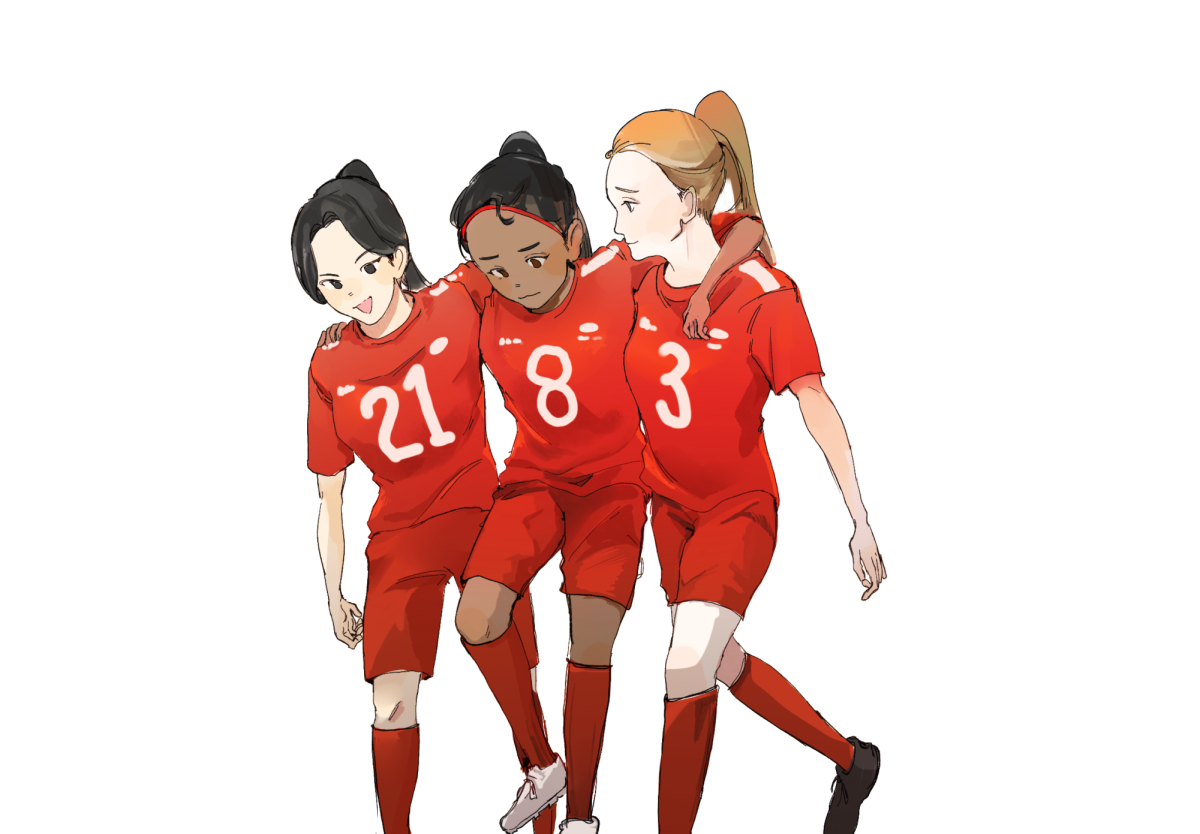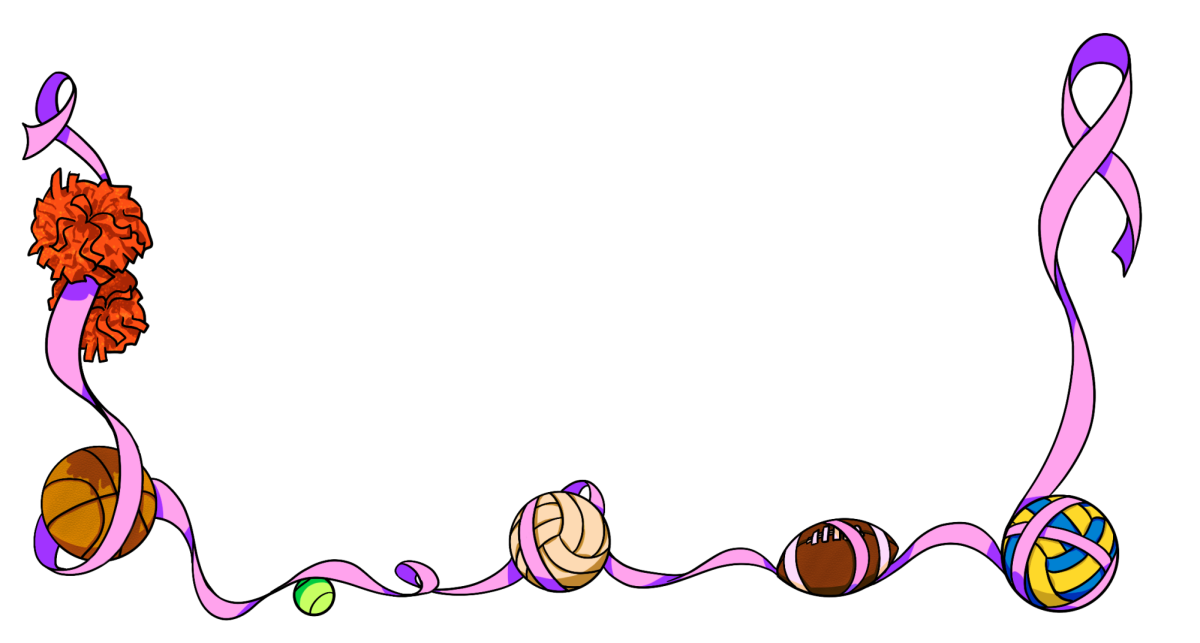Written by Michael Chen
In light of recent events, the Gunn community is focusing its efforts on trying to help students tackle stress. The community is implementing solutions to reduce academic stress by cutting down student workloads and streamlining the study process. However, trying to lighten workloads is not the only way to deal with stress. In addition, the community should look to sports. Through sports, students acquire a variety of skills that are critical for stress management. Furthermore, playing a sport can provide people with a mental respite from the other pressures of life, something that is crucial for maintaining a healthy lifestyle.
One of the most important skills that sports teaches is effective time management, which is critical for reducing work related stress. While sports do add to the stress of scheduling, ultimately this stress helps to teach athletes better time management. For example, senior Guy Kasznik, a football and soccer player, said playing sports actually helps him to study efficiently. Kasznik believes that while most people think spending a lot of time on sports makes study more difficult, his experience has been the opposite. “Spending so much of my free time on sports actually makes it easier to study,” Kasznik said. “Most people, when given a large amount of time to study, usually find ways to distract themselves because they think they have time to do it later. For athletes, you get a small window of time to do your work. This requires you to be efficient with your time.”
By doing a sport that takes two to three hours each day, students learn to reduce procrastination. To succeed, they must structure their time and get through work efficiently. Thus, through sports, students improve time management ability and become more proactive in handling stress.
In addition to teaching effective time management skills, many sports also give students the opportunity to be part of a team. Teammates form a close-knit support network, similar to a family with members who support each other. Senior Kiley Lin, a committed swimmer and water polo player, said that her teammates can always help cheer her up. According to Lin, all of the hard work they put in together has made her team almost like a second family. “I am with my swim team for around 24 hours a week, and we’ve gotten really close because we’re always working so hard and having so much fun together,” Lin said. “It’s like I have a swim family in addition to my actual family.”
Lin’s teammates serve as friends, competitors and counselors in times of need. This positive experience is shared by athletes in many sports. Sophomore Emma Munch, a competitive volleyball player, said that being on a team is one of the best parts of playing volleyball. “Volleyball is great for me in a lot of ways,” Munch said. “Not only does it let me get my anger out, but it’s also a team sport. It’s really encouraging to know that they’re there with me, and that just helps me relax.”
The benefits of having a team are consistently proven by studies around the world. A study done in 2014 by the University of Toronto showed that participating in team sports improves both long and short term mental health in teens and young adults. The study showed a strong correlation between participation in team sports and lower symptoms of depression, stress and mental health.
Furthermore, with any competitive sport comes hard work and competition. Athletes are constantly faced with new challenges during training and competition and must learn to be resilient, even in the face of adversity. While different sports create different kinds of pressures for athletes, the result is the same. Sophomore Tone Lee, a basketball player, said the pressure and excitement of basketball has taught him valuable lessons about handling stressful situations. “A lot of basketball games come down to the last point scored,” Lee said. “These situations have taught me to keep calm.” Lee believes that his ability to handle stressful moments calmly has been hugely beneficial to him. After experiencing the intense pressure of close games, other kinds of stressful situations become less daunting. “Before I started playing basketball I was really shy,” Lee said. “After playing basketball, I gained a lot of confidence, and I learned to control my nerves better. I became a lot friendlier.”
Sports also give students a period of mental respite each day, allowing the mind to focus on the task at hand. This prevents stress from continuously building up in the mind and causing students to become overwhelmed. Jay Choi, a senior, said that playing sports, such as swimming, was how he coped with all of the competing stressors of his life. Choi, who suffered from depression and mild schizophrenia, said that swimming was always a time for him to clear his head and relax, and it played a major role in helping him overcome depression. “I was depressed for a time, and my treatment would only add to the stress, because I would get further behind on work,” Choi said. “Swimming was a way to cope with this, because it gave me time to think and really swim away from my problems and cleanse my mind. Every time I jumped in the pool, I forgot about my daily stresses and worries. It helped me not feel overwhelmed.”
All of these benefits can be made available to students, if the community places more importance on increasing student involvement in sports. Sports are often overlooked as a stress-solving solution because of common misconceptions that playing sports ultimately increases stress because it takes up time. However, the lessons and experiences that sports have to offer not only make up for these deficits, but also make sports a simple and effective way to begin solving the puzzle of student stress.











